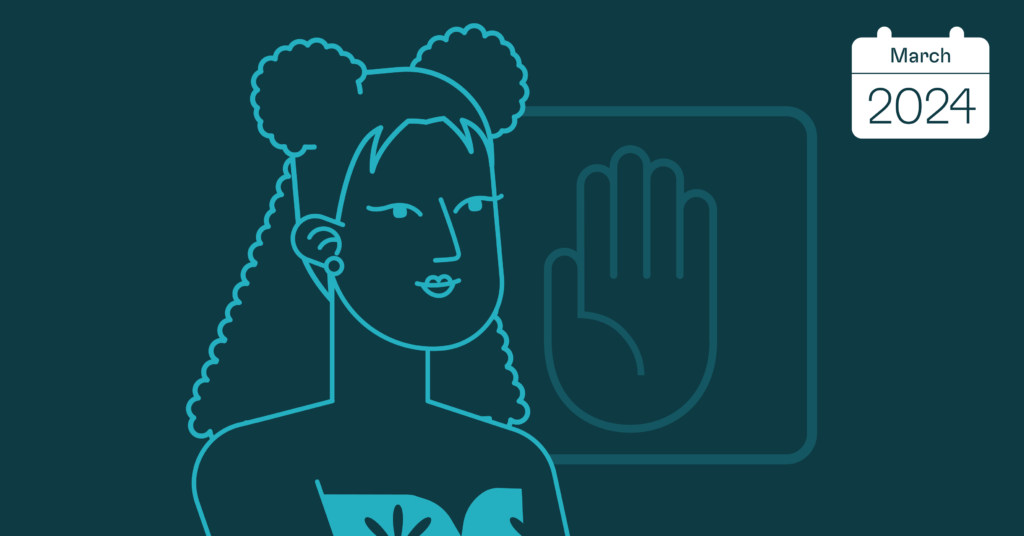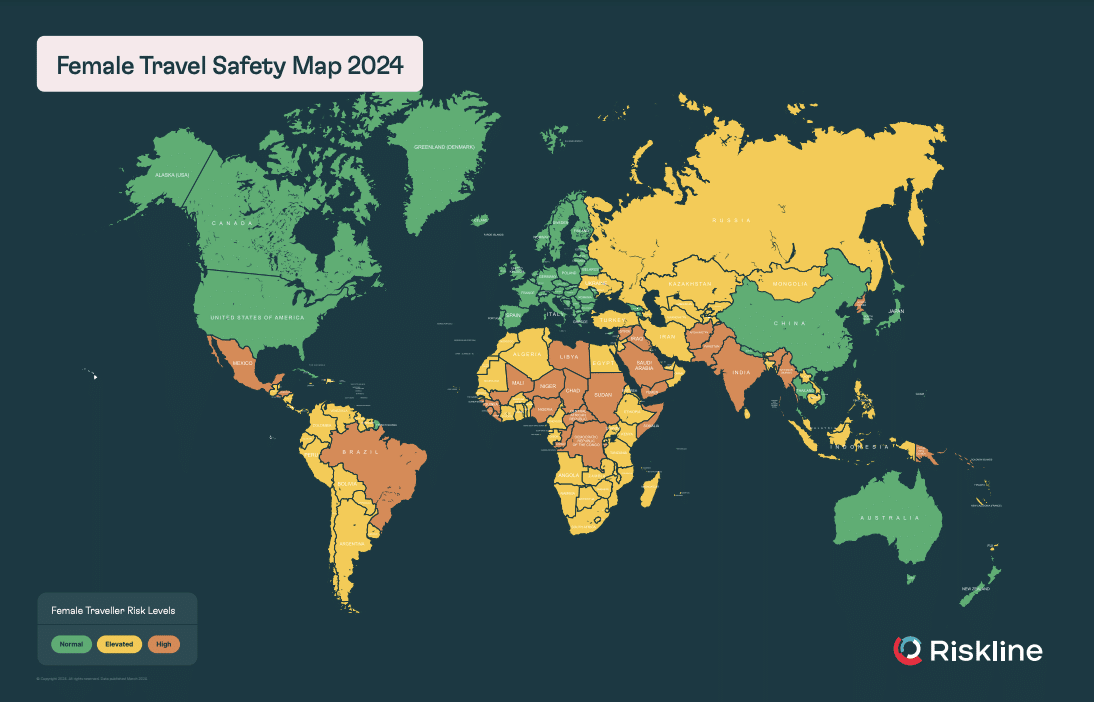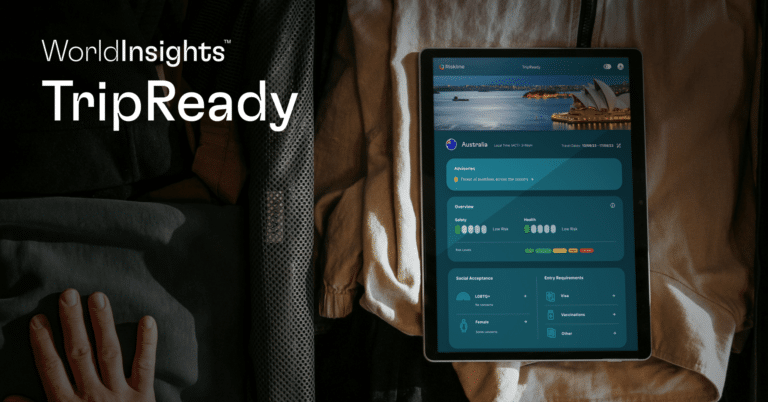By Claudia Gualdi and Lorena Peña
Last year Riskline analysed the benefits of solo travel as a source of empowerment for women, while also sharing tips for making female solo travel fun and safe. Female solo travel keeps recording a strong rise ever since the post-pandemic, but restrictions on women’s mobility continue to be concerning in many places across the world.
Discriminative policies violate women’s rights of freedom of movement, work, study, and access to health care among others. At the same time, they expose female travellers to higher safety concerns, including sexual harassment, gender-based violence, and imposition of conservative social, cultural and religious customs.
How safe is it to travel as a woman in 2024? What are the challenges and opportunities, especially for women travelling for business to high-risk countries or destinations where women’s rights are poorly protected?
Safest and unsafest destinations for female travellers in 2024
Riskline’s Female Travellers Safety map is based on Riskline’s internal data, which takes into account different variables, in particular:
- Laws and Customs, which may include dress-code, behaviour and topics of discussions
- Safety, which takes into account reports and rates of harassment, sexual assaults and violence targeting women in the country, overall safety of walk alone at night, and taxi safety among others
- Health and Wellness, which observes the average level of services, including access to some specialised gynaecological and reproductive health services, medicines and the availability of feminine hygiene products in the country
View the Female Travel Safety map in full size
Generally speaking, Europe is the most widely safe area for female travellers. Within the APAC region, Singapore, Canada, Japan, and New Zealand are among the safest countries, while female safety can vary significantly between North America and LATAM countries, and within the same country too. For instance, the travel experience in Mexico and Brazil could differ significantly between different states. That’s the case also for other big destinations like India. On the other hand, most of the SSA and MENA regions are notoriously unsafer for women, due to political and social instability, ongoing conflicts, and lack of services and infrastructures that grant safe travel experiences.
Business trips: where is it more difficult to travel as a woman? What are the risks?
Since duty of care is not gender-specific, it’s not surprising that a study conducted by the Global Business Travel Association (GBTA) found only 18 percent of corporate travel policies specifically addressing the safety and security of female business travellers. A 2023 survey by World Travel Protection, found that 71 per cent of female business travellers say travelling for work as a woman is less safe than travelling as a man. Female safety still needs improvement.
Overall, travel to North Africa and the Middle East exposes women to major risks and restrictions. In some contexts, women can’t even move freely within their countries and abroad. In Algeria, Saudi Arabia, Kuwait, Iran, and Yemen there are the most stringent regulations, and sometimes even obtaining a passport or a permit to travel abroad depends on a male guardian or from a court. These restrictive policies limit not only women’s ability to travel for leisure but also their business activities and work opportunities.
But what about women travelling there from other countries?
In countries where there’s an elevated or high concern for female safety, foreign business travellers may receive unwanted attention from local men, ranging from open displays of catcalling, whistling, stalking and staring to physical groping. Some friendly behaviour considered normal at home, such as smiling or making small talk with strangers, may lead to unwanted attention or advances. In these countries, women should take extra precautions when it comes to organising movement and transport, there is a higher concern for personal safety. Moreover, access to health services or feminine hygiene products could be limited.
Travelling for business also implies complying with religious customs such as wearing a hijab or niqab, in countries where this is mandatory like Iran and Afghanistan. Other destinations such as Saudi Arabia don’t impose such requirements on visitors. But females would still need to dress conservatively and would feel more comfortable wearing baggy clothes and avoiding showing arms and chest.
Companies and TCMs should have clear safety policies and provide the correct support during all phases of the trip. For example, transportation logistics should prefer early flight schedules, avoiding travel solo during the night. Accommodation options should opt for venues near the meeting and working places, and possibly offering pre-arranged transportation. Reliable communication channels and access to assistance at all times during a business trip. It’s also important to advise female travellers before the trip, regarding the local customs and traditions of the destination. As well as health and wellness standards, such as the availability of feminine hygiene products or medications. That’s where Riskline can help.
How we help female travellers in Riskline products
Female travellers safety is of utmost importance to us. Riskline provide several assessments tailored for female travellers.
Travel Search
We have a Female safety index in the Travel Search Widget, based on three assessments: the country’s local customs and laws for females, a female safety score, and the overall availability of health and wellness services. This Index, and further information, are available also in the Female safety information on the Travel Search API.
TripReady
Our upcoming product that gives travellers a quick overview of their destination before the trip will also display female traveller safety info. Stay tuned for more updates!
Female Traveller Safety Reports
Riskline’s Female Traveller Safety Reports are detailed country-specific reports prepared by our analysts. The reports support a company’s Duty of Care obligation to keep employees safe while travelling to over 220 countries and territories. Variables such as Local Customs and Laws, Safety, Health and Wellness allow us to have a broad vision of a country and the possible risks to be faced. The Female Traveller Safety Reports are accessible via the Riskline portal and API for integration into travel apps. You can also read more on Riskline’s Top Five Best Practices for Female Traveller Safety.


